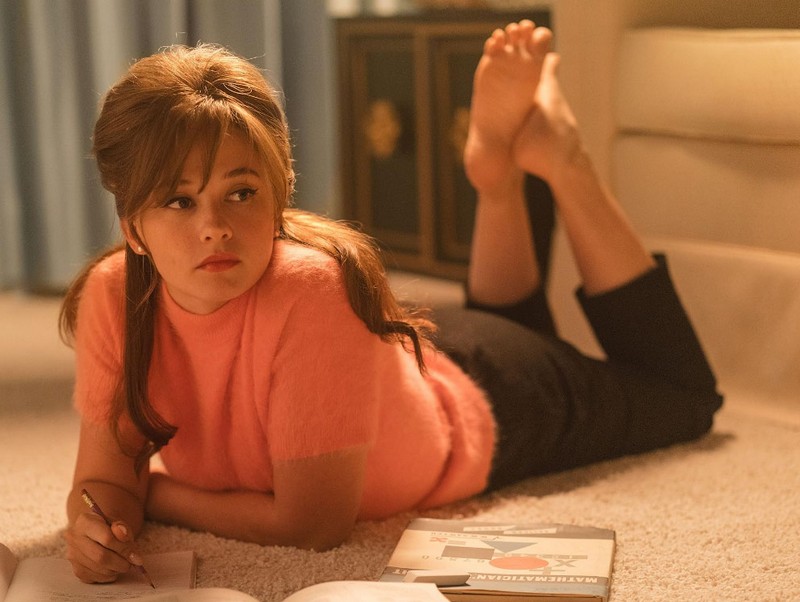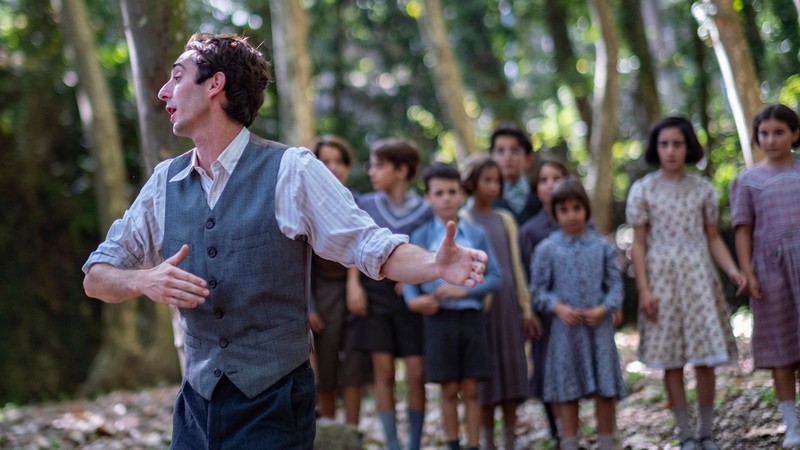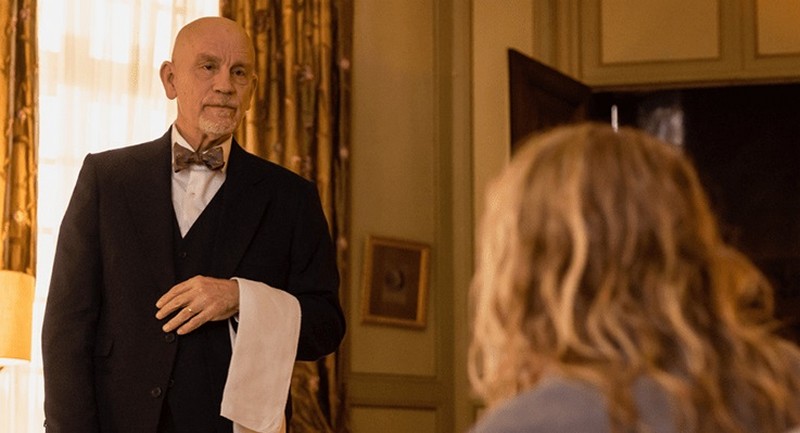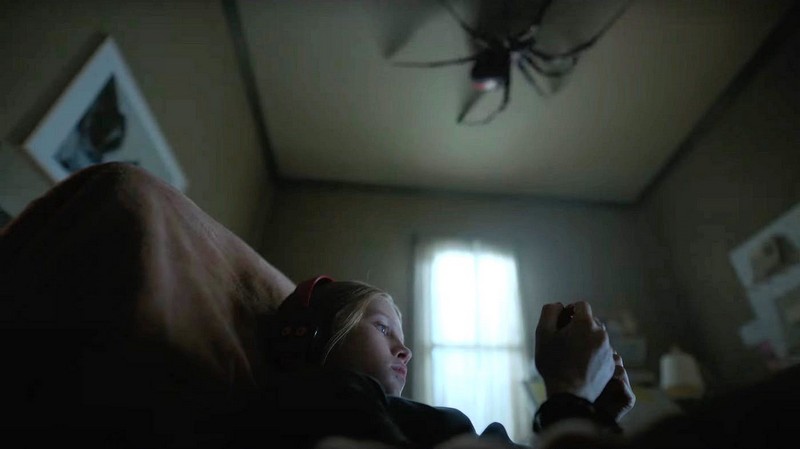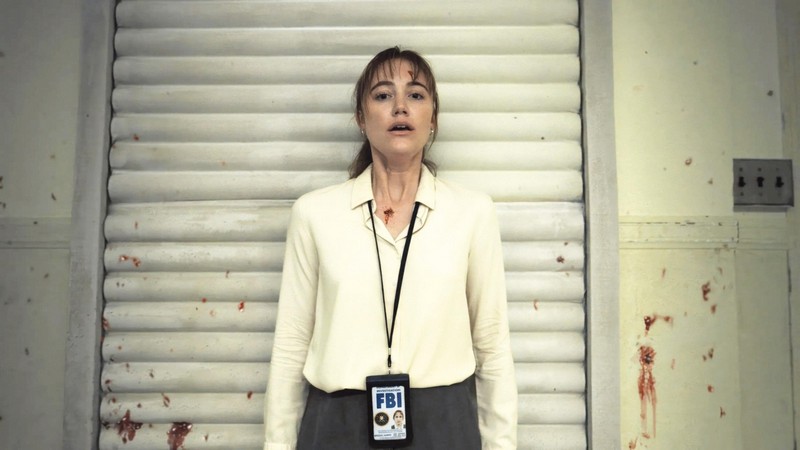It’s been a boom time for new films from some of cinema’s great stylists. In the past 12 months, we’ve had new movies from the likes of Wes Anderson, Christopher Nolan and Martin Scorsese. Now we have a new release from Sofia Coppola in Priscilla; a layered, impressionistic portrait of the relationship between Priscilla Presley and one-time husband Elvis.
Coppola returns here to a recurrent theme of her work – young women trying to make their way in a world that’s either indifferent, or actively hostile, towards them. These young women are often outsiders – Scarlett Johansson’s Charlotte adrift in Tokyo in Lost in Translation, or Kirsten Dunst’s titular Austrian in the French royal court in Marie Antoinette. These heroines are looking to make their own path, but must navigate obstacles in their way. In the case of Priscilla (the character), those obstacles are immense.

The central thesis of the film is basically laid out in the jaunty title sequence. Priscilla (Cailee Spaeny) is getting ready for some event in her room. As her polished toes feel the deep-pile carpet, and she puts on cat’s eye make-up, the camera lingers on items in the room: a piano, a mirror, a porcelain elephant. As the film progresses, it becomes apparent this is her room in Gracelands, Elvis’ rather palatial home in Memphis. In a telling later scene, Elvis (Jacob Elordi) ushers her into the same room – and all the objects picked out in that opening are already there. These aren’t her things – they’re his things. And he wants her to become another one of his things.
Coppola adapts book Elvis and Me by Priscilla Presley and Sandra Harmon into the film’s screenplay. This is not the first adaptation (there was a 1988 TV miniseries), but Coppola wisely avoids getting into too much sordid detail. But it’s pretty clear that Elvis doesn’t come out of this looking good. That didn’t bother me – I’m constantly baffled by Elvis’s enduring popularity – and no one could accuse either Priscilla or Coppola of pandering to Elvis’s memory.
Sofia Coppola’s films often have an ethereal quality, and this is no exception. The early scenes focus in on what it must have been like for a schoolgirl Priscilla to be wooed by the biggest pop star on the planet at that time. As Priscilla grows into her life with Elvis, the film takes on a more clear-eyed perspective. Coppola structures the film in such a way that events move quite slowly at the beginning, but rapidly towards the end, perhaps reflecting the character’s experience. And while that approach really works in the context of their relationship, it doesn’t allow for a lot of wiggle room in other areas of the film. Elvis’s relationship with Black people, for example, is referenced in one brief scene that requires some background knowledge to understand.
Unlike Napoleon or Maestro (which both explored noted men through their relationships), this film squarely centres Priscilla. Elvis is (refreshingly) reduced to basically a plot device to explore what’s going on with her. So, even leaving aside his poor behaviour towards Priscilla, this isn’t a love letter to Elvis by any means. And if you were hoping to hear lots of Elvis music, sorry, that’s not happening either. I counted three songs associated with Elvis in the movie, but the only actual instance of Elvis performing is in an archival film clip. The music instead features era-appropriate songs, some anachronistic numbers (a device often used by Coppola) and an understated score by Phoenix.
In a film that concentrates so heavily on its central relationship, the leads need to be prominent. Cailee Spaeny (Mare of Easttown) delivers on all fronts. She’s mesmerising whenever she’s on screen, and makes Priscilla believable as both a schoolgirl, a mother and a mature woman. Australian Jacob Elordi (Saltburn) presents an interesting casting choice. The actor is much taller than Elvis actually was, and towers over the diminutive Spaeny – no doubt to emphasise the power imbalance. Elordi does a good job in the more unsympathetic role. However, I was never fully able to accept him as the character rather than an actor playing the character. The supporting cast is large but mostly relegated to the background; though Ari Cohen (IT Chapter Two) stands out as Priscilla’s father.
It should come as no surprise that the technical aspects of Priscilla are top-notch. Philippe Le Sourd’s vibrant cinematography imbues the film with a candy-coloured sheen (after a lot of olive-drab of the early scenes). His lens lovingly picks out some elegant costume design by Stacey Battat; and Tamara Deverell’s on-point period production design.
As with all Coppolla’s films, Priscilla unfolds at a leisurely pace, which some will find frustrating. It also relies heavily on allusion and metaphor, which requires input from the audience rather than passive viewing. But with all that said, I really enjoyed it. The film provides a sharp counterpoint to Baz Luhrmann’s Elvis, and for all its pastel-pink trappings, delivers a powerful message.
David Edwards
Other reviews you might enjoy:

David Edwards is the editor of The Blurb and a contributor on film and television

